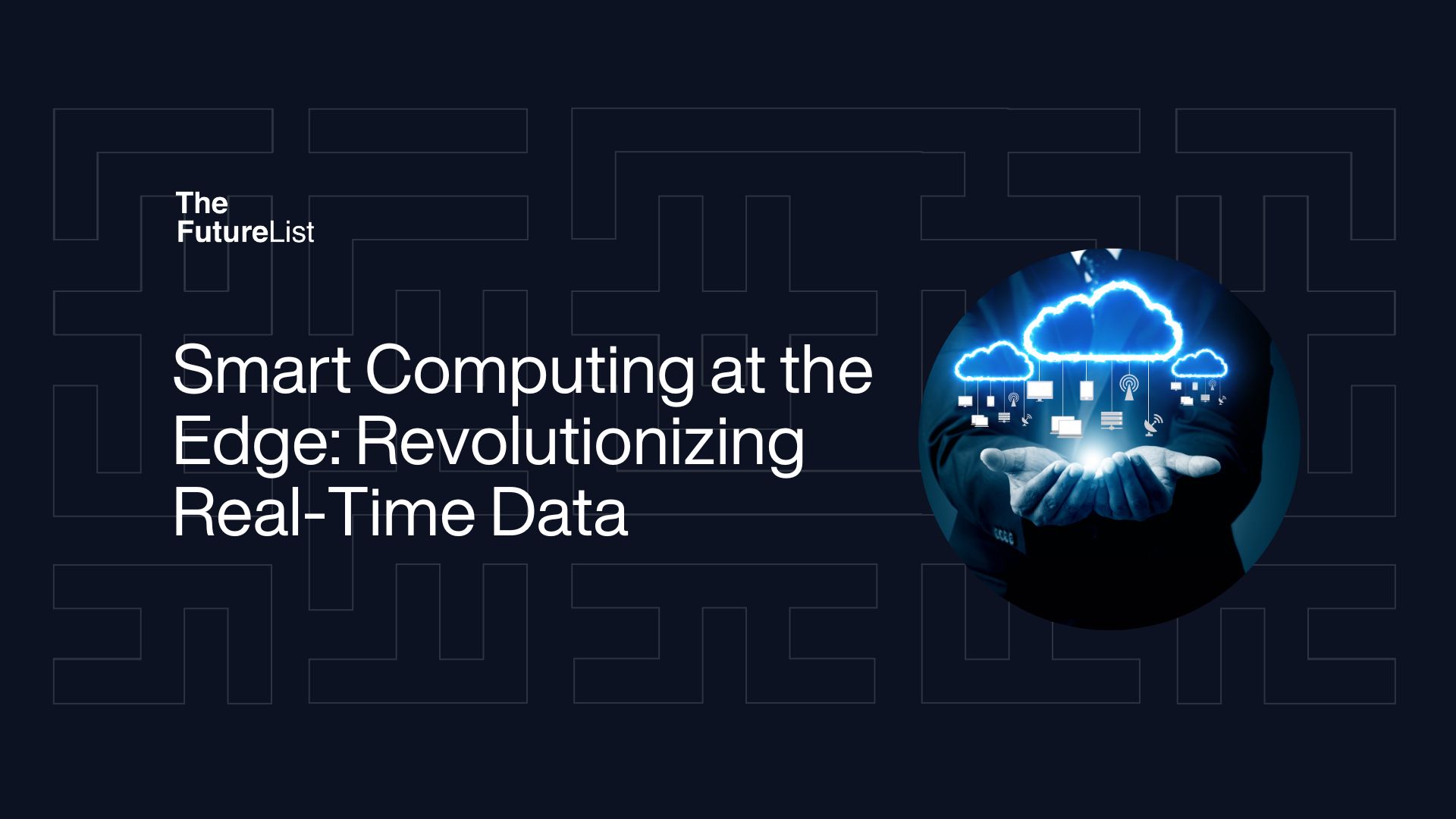
Smart Computing at the Edge: Revolutionizing Real-Time Data
By Henry Duah
The demand for real-time data processing and low-latency responses has become paramount in the rapidly evolving digital landscape. This necessity has propelled the adoption of Edge Computing, a paradigm that brings computation and data storage closer to the data sources.
Edge computing refers to the decentralised processing of data at the network’s periphery, near the data generation points, rather than relying solely on centralised cloud servers. This approach minimises the distance data must travel, reducing latency and enabling faster decision-making. It is particularly beneficial for applications requiring immediate processing and response, such as autonomous vehicles, industrial automation, and real-time analytics. By processing information at or near the source, edge computing reduces latency, conserves bandwidth, and enhances the efficiency of data-driven applications.
Edge computing is a transformative force in today’s digital era, addressing the growing need for immediate data processing and low-latency responses. This article explores Edge Computing’s diverse applications across various industries and highlights innovative startups pioneering solutions.
Edge Computing Applications Across Industries
The versatility of edge computing has led to its adoption across a multitude of sectors, each leveraging its capabilities to address specific challenges and enhance operational efficiency:
- Manufacturing
In the realm of Industry 4.0, manufacturers employ edge computing to monitor equipment performance in real-time, predict maintenance needs, and optimise production processes. Factories can swiftly respond to anomalies by processing data on-site, reducing downtime and improving productivity.
- Healthcare
Edge computing facilitates remote patient monitoring by processing health data locally on wearable devices, ensuring timely alerts and reducing the need for constant data transmission to centralised servers. This innovation enhances patient care and alleviates the burden on healthcare IT infrastructure.
- Agriculture
Farmers utilise edge computing to analyse data from soil sensors, weather stations, and drones directly in the field. This innovation enables precise irrigation, fertilisation, and pest control, increasing crop yields and resource efficiency.
- Retail
Retailers implement edge computing to process in-store sensors and camera data for inventory management, customer behaviour analysis, and personalised marketing; these lead to an enhanced shopping experience and operational efficiency.
- Transportation
Edge computing supports real-time traffic management, autonomous vehicle operations, and predictive infrastructure maintenance in the transportation sector, contributing to safer and more efficient transit systems.
Some Innovative Startups in Edge Computing
Latent AI (2018, USA)
Latent AI, founded by Sek Chai and Jags Kandasamy, is an enterprise-grade edge AI platform that enables developers to rapidly design, optimise, and deploy machine learning models on resource-constrained edge devices. Their flagship solution, the Latent AI Efficient Inference Platform (LEIP), supports the full AI lifecycle, from selecting the right model and hardware pairing (LEIP Design) to optimising performance across devices (LEIP Optimize), and deploying in secure, real-time environments (LEIP Deploy). The platform supports adaptive AI, enabling teams to quickly retrain and redeploy updated models, making it ideal for dynamic and mission-critical environments like drones, robotics, and autonomous systems.
Teraki (2015, Germany)
Teraki is a Berlin-based deep tech company founded by Daniel Richard, innovating in autonomous mobility through edge AI and machine learning. Their mission is to accelerate the adoption of safer, smarter, and more sustainable autonomous systems by offering pre-built software development kits that simplify integration for OEMs, SoC providers, and robotics companies. Teraki’s technology enhances existing sensing devices by enabling accurate, low-latency data preprocessing directly on low-power hardware. This results in faster and more precise AI model training, reduced system complexity, and real-time decision-making capabilities.
Edge Delta (2018, USA)
Edge Delta, founded by Fatih Yildiz and Ozan Unlu, transforms organisations’ management of observability and security data through intelligent, scalable Telemetry Pipelines. Designed for today’s data-intensive environments, Edge Delta empowers engineers to ingest, enrich, transform, and route telemetry data—logs, metrics, traces, and more, before it’s indexed. This reduces costs, boosts performance, and enhances visibility without compromising flexibility.
Get innovation insights from The FutureList weekly. Subscribe to our newsletter here
Categories
- Agritech
- Artificial Intelligence
- Biotech
- Blockchain
- Climate Tech
- Data Infrastructure
- Edtech
- Events
- Fashion
- Fintech
- Healthtech
- Infrastructure
- Innovation Memos
- Innovation Scout Program
- Insight
- Insurtech
- Machine Learning
- Martech
- Mobility
- Music and Media
- Partner Offers
- Perks
- Procurement
- Proptech
- Retailtech
- Ridehailing
- Ridesharing
- Robotics
- Space Aviation
- Supply Chain
- Talent
- Telecoms
- Uncategorized
- Venture Capital
- Wastetech
- Women In Tech
Recent Posts
- How AI Surveillance is Shaping Public Safety in Smart Cities
- Innovation Memo with Zencey: Bringing Equitable Healthcare to Africa
- Inside the Software Model Running Modern Harbours
- The Formula for Future Speed: Data-Driven Performance in Racing
- Leveraging Next-Gen Endoscopic Interventions and Innovations for Healthcare